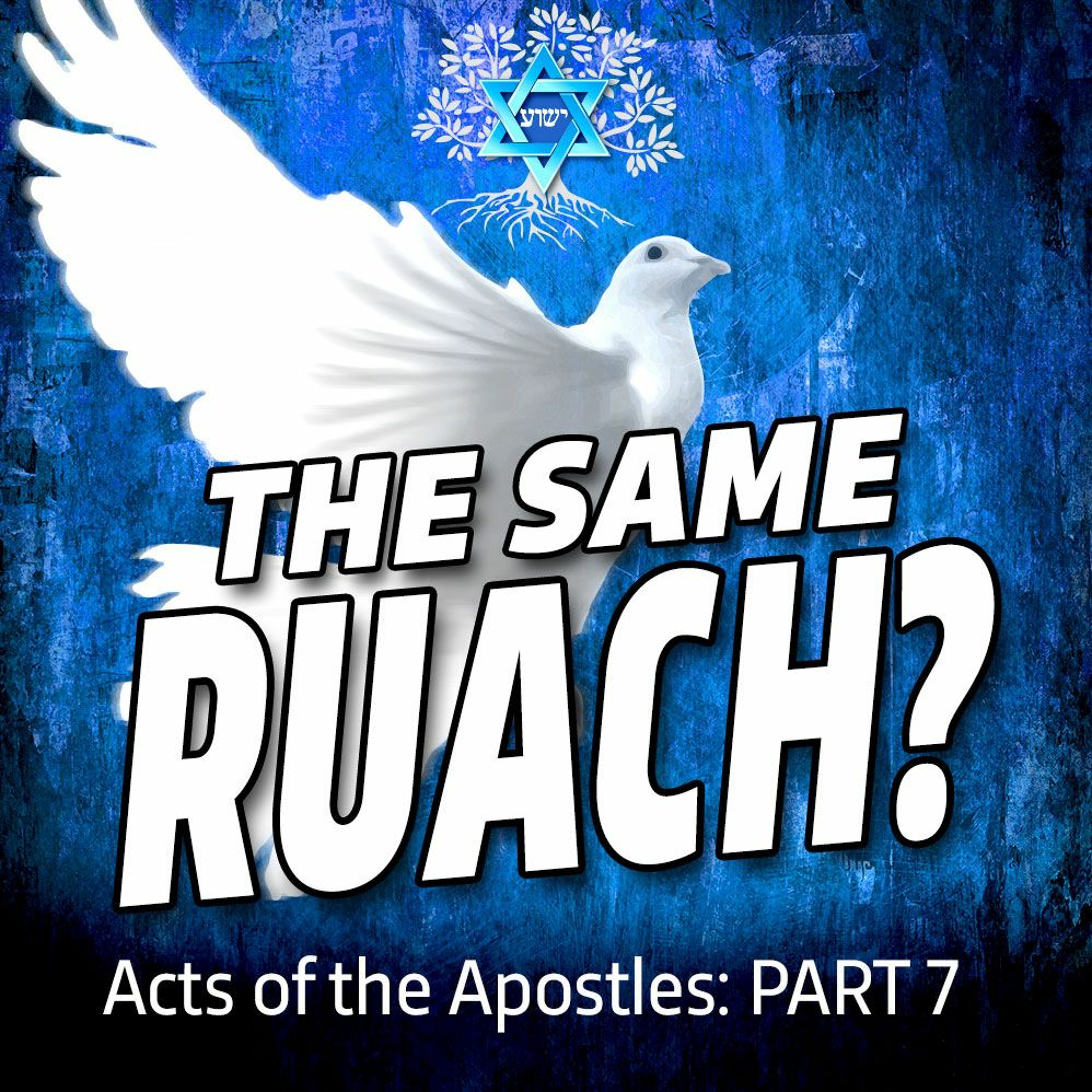[00:00:00] Speaker A: I know a lot of people who believe that God has given up on them for various reasons. Maybe they made a poor decision that they feel marks them as a failure. Maybe they believe they missed their calling and now there's no way to change their course of life. Maybe their marriage failed. Maybe they're stuck in a dead end job making minimum wage. Maybe one of these is you. But is this the God we serve? If you can't see his love because of the way you see yourself, then stick around and learn about the God of second chances in this week's five minute Torah.
Welcome back, Shalomis. Welcome to another episode of the five minute Torah. This week we are studying the Torah portion of Baha Alodka, numbers 8112 15, and here are the three things that you need to know about it. Number one, Baha Alodka. Lighting the menorah. The Torah portion, Baha Alodka, which means when you kindle, begins with God's instructions to Aaron regarding the lighting of the menorah in the Mishkan or the tabernacle. Aaron is commanded to set up and light the seven lamps of the menorah so that they shine forward, illuminating the area in front of it. This act of kindling the menorah is rich with symbolism, representing the light of God's presence among the children of Israel. The continual lighting of this menorah by Aaron and his descendants serves as a perpetual reminder of God's guidance and the importance of maintaining spiritual integrity within the community. It highlights the sacred duty of the priests and the central role of divine light in worship and daily life. Number two, coveting and quail the dangers of discontent in our current Torah portion, we also learned about the Israelites dissatisfaction with their diet, a chronic problem that hasn't changed in any time or culture since the dawn of time. However, Israel longs for the types of foods they had in Egypt, particularly meat, and complains about their reliance on manna. Their complaints reach Moses, who becomes distressed by the burden of leading a discontented people, and in response, God promises to provide. And a strong wind brings quail from the sea covering the camp. However, while the people are still eating the quail, God's anger is kindled against the ungrateful, resulting in a severe plague. Through this sad event, we have an opportunity to learn gratitude, trust, and the dangers of discontentment. Number three, Miriam and Aaron challenging Moses. In our current Torah portion, we also read about Miriam and Aaron challenging Moses unique leadership, questioning his authority, and criticizing him for marrying a cushite woman. They assert that God has also spoken through them, implying that Moses should not hold a superior position. God responds swiftly, calling Moses, Aaron, and Miriam to the tenement meeting. He then affirms Moses unparalleled prophetic status, speaking with him face to face unlike any other prophet. As a consequence of their challenge, Miriam is struck with Zara, biblical leprosy turning her skin white as snow. Aaron pleads with Moses, who intercedes on her behalf. And after Moses prayer, God instructs that Miriam be confined outside the camp for seven days before being healed, a lesson in reverence for those in authority if you're looking for a place to learn, connect, and grow, then Shalom Macon is the place. It doesn't matter where you are in the world. You can find a connection with Shalom Macon through our live services every Saturday and through our private social network we call Shalom at home. Check us out on YouTube and on our
[email protected], for more information. We look forward to connecting with you and seeing you this Shabbat. This week's Torah commentary is called God of second chances and comes from my book five minute Torah, volume two. In this week's Torah portion, one of the things we learned about is how the children of Israel offered the Passover for the very first time since their departure from Egypt. A full year had passed since they had left Egypt, and it was time to fulfill the instructions they had previously been given. You shall therefore keep this statute at its appointed time from year to year. Exodus 1310. Therefore, Moses instructed the Israelites to offer up the Passover at the appropriate time in the second year, and they kept the Passover in the first month, on the 14th day of the month, at twilight in the wilderness of Sinai, according to all that the Lord commanded Moses. So the people of Israel did. Numbers nine five. Everything went well until a group of men came to Moses with a dilemma. They had come in close proximity to a corpse and had contracted corpse contamination, the most serious of all ritual contaminations and the most difficult to cleanse. They were unfit to partake of the Passover offering. They appealed to Moses, saying, why are we kept from bringing the lord's offering at its appointed time among the people of Israel? Number seven nine. Unlike our modern mentality that objects with why do I have to? These men asked. Why don't we get to? They were commanded to participate in the Passover, and they were anticipating doing so, but now they were unable to. What was the solution? Moses, in his wisdom, did not reply to them immediately. He petitioned the Lord for an answer to the problem. The Lord's response was that anyone in any generation who is unclean through touching a dead body or is on a long journey at the time of the Passover will have an alternative ceremony identical to the original Passover, but performed month later. Rather than offering up the Passover on the 14th day of the first month, the month of Nisan, they will offer it up on the 14th day of the second month, the month of Iyar. All of the same regulations and restrictions apply. They shall eat it with unleavened bread and bitter herbs. They shall leave none of it until the morning, nor break any of its bones. According to all the statute for the Passover, they shall keep it. Numbers 911 twelve. Although this stipulation was not originally part of the Lords instructions for the Passover, in his mercy he made an exception for those who were not able to participate at the proper time due to uncontrollable circumstances. Many people believe that the Torah is legalistic, and often the God of the Jews is characterized as being hostile and malicious, but this incident proves otherwise. We can see from this that the God of Israel is a God of second chances. If a person is sincere and wants to obey the Lord's instructions, but is unable to for reasons beyond their control, God extends mercy and even merits them, as if they had fulfilled it in its original manner. However, there is a caveat. The Lord's mercy cannot be taken advantage of without repercussions. But if anyone who is clean and is not on a journey fails to keep the Passover, that person shall be cut off from his people because he did not bring the Lords offering at its appointed time, that man shall bear his sin.
If a person has the opportunity to obey but intentionally chooses otherwise, he will bear his own guilt and suffer the consequences thereof. Does this only apply in the pre New Testament times? James, the brother of our master Yeshua, alludes to this concept in his epistle. He tells his readers, so whoever knows the right thing to do and fails to do it, for him it is sin. Yes, the Lord is merciful at understanding, but we should never suppose that his mercy is acceptance of inappropriate behavior. The Lord's kindness should lead us to repentance. Romans two four and his faithfulness to devotion. Yes, our God is a God of second chances, but let us not abuse his mercy. Have you ever felt that you failed God and were too ashamed to try again? How did you overcome it? Do you have any advice for others who might be struggling with this same problem? Let me know. I'd love to hear your advice. And in case you missed last week's powerful teaching at Shalom Macon. All for one, one for all. You can check it out using the link above or at the end of this video. I'll see you next week for another messianic insight into the eternal tour of God. Blessings from Shalom Macon, the place where disciples of Yeshua Learn, connect, and grow.
[00:08:25] Speaker B: Please visit our website, shalommaken.org, to learn more about us. Join our live services, access other teachings, sign up for our newsletter, join our private network that will connect you with our greater community from around the world, or contribute to the work of Shalom Macon. Thank you for watching, and we look forward to connecting with.



